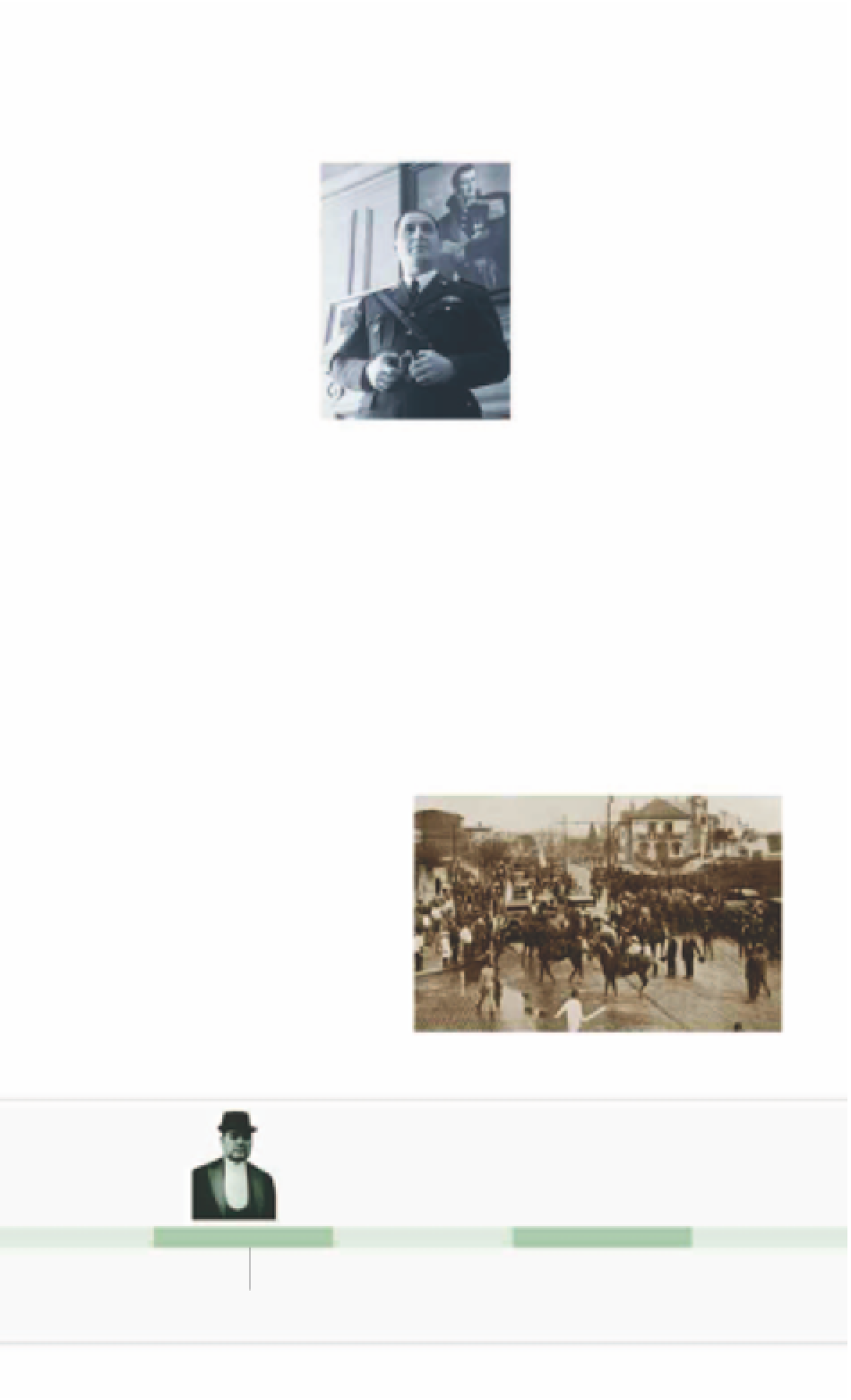Travel Reference
In-Depth Information
many problems: wealth was poorly
distributed and interior provinces had
become increasingly distant from Buenos
Aires and the Pampas, both economically
and socially. Crowding in
cities was a problem, and
poor health and economic
exploi tation were common.
Such dis pa ri ties provoked
uprisings and demands for
greater political representa-
tion. In 1916, the newly
formed Unión Cívica Radical
(Radical Party) won power,
marking the advent of popu-
lar politics after a century
of elite rule.
living conditions were desperate. Their
plight, and their potential as a social
and political force, went unrecognized
until the emergence of an obscure army
general, Juan Domingo Perón,
who went on to become one
of the most influential figures in
Argentinian history.
The Rise of Perón
Juan Perón gained influence
and power between 1943 and
1945 through his alliance with
Argentinian labor unions. He
became Vice President and
Secretary of War in 1945; in
the same year he was forced
to resign by military opponents.
Perón was arrested, but mass demon-
strations organized by the trade union
federation forced his release. A few days
later, he married Eva Duarte. Coming from
a poor rural family, she pursued a radio
and film career in the capital before
meeting the future president at a charity
event. Together they changed the course
of the country's politics for the next three
decades to come.
Juan Perón in front of a portrait of
José San Martín
Popular Politics and Militarism
The rise of the Radicals coincided with
World War I, a collapse in international
grain prices, and recession. Strikes were
called and social unrest continued into
the 1920s. Inspired by totalitarian Europe,
the armed forces began to view Argentina's
democracy as flawed, and when the 1929
Wall Street crash unleashed a deeper
depression, the military ousted the
Radicals in 1930.
Argentina was returned to civilian rule
in 1932, with the military backing a
succession of conservative governments
that became synonymous with fraud.
Global recession, meanwhile, pushed
unemployment in rural areas up to
unprecedented levels, causing thousands
of workers to migrate to the big cities. By
the outbreak of World War II, Argentina
had a new urban working class whose
Military vanguards in the capital city during the 1930s coup
Hipólito Yrigoyen, leader of the Radical Party
1919
Week-long bloody
repression of striking
workers earns the
nickname Semana Trágica
(Tragic Week)
1912
The Sáenz Peña
Law introduces universal
male suffrage
1930
Argentina's first military coup
1943
Second military coup
overthrows conservative regime
1900
1910
1916
Radical Party wins
national elections
1920
1930
1940
1939-44
Argentina remains
neutral for much of World
War II





































